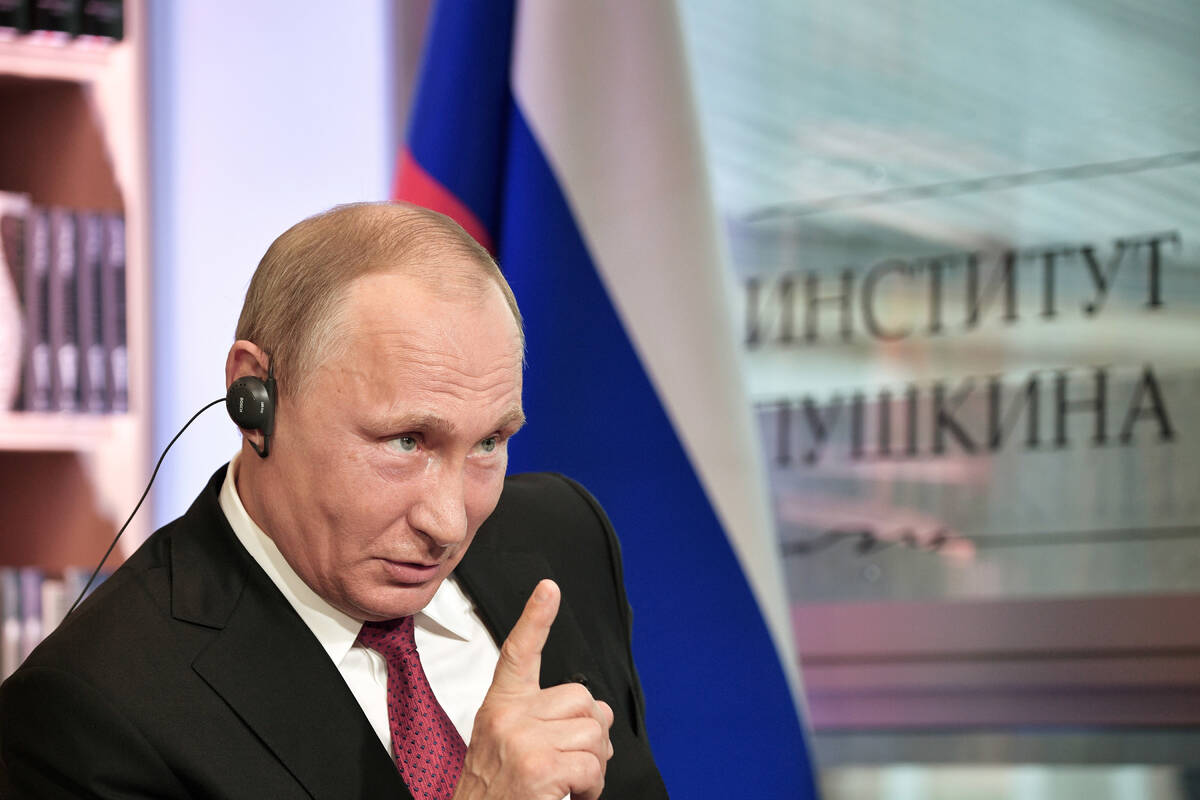COMMENTARY: Syria’s collapse exposes Russia’s weaknesses globally
Russia’s military intervention in Syria since 2015 has allowed it to assert its power, creating a misleading perception of Russia’s military might. In contrast, Ukraine has dispelled that illusion and significantly injured its invaders.
Russia’s decade-long involvement in Syria has failed, much like its invasion of Ukraine. Although Russia’s stature has declined, it will keep up the pretense.
Now that the rebels have ousted Syrian President Bashar al-Assad, they have also exposed Russia’s fragility and difficulty supporting its client states such as neighboring Belarus. This turn of events will undoubtedly change the geopolitical landscape, particularly affecting Iran, which is providing Russia with drones. That bodes well for Israel.
During the Arab Spring in 2011, people rose up and ousted the leaders of Egypt, Libya, Tunisia and Yemen. However, Russia protected Syria, enabling Assad to remain in power. Russia has also benefited, gaining a foothold in the Middle East and establishing two military bases. The country has invested heavily in Syria by deploying troops, conducting airstrikes and providing economic support — money down the tubes. Russia has given refuge to Assad, and even Russia’s state-controlled media can’t hide that dark reality.
Former President Barack Obama has described Russia as little more than a large gas station with nuclear weapons, suggesting that its influence is mainly regional — thinking with which President Joe Biden agrees.
Ukraine has underscored this critique by stating that Russia cannot effectively fight on two fronts and that Ukraine’s military efforts have significantly weakened Russia’s capacity to exert international influence. This experience serves as a warning to other countries that they cannot rely on Russia. To engage in the conflict with Ukraine, Russia must dedicate all of its workforce and weaponry.
Moreover, Ukraine and President Volodymyr Zelenskyy symbolize the quest for sovereignty and the defense of democracy, aligning themselves with the rebels who overthrew Assad and, by extension, opposed Russia’s presence in Syria. At the same time, Ukraine highlights Russia’s alleged war crimes, drawing parallels to its actions in Syria, particularly the indiscriminate bombing of innocent civilians.
Kyiv portrays itself as the bulwark against Russian imperialism and the “iron curtain” — an ironic label — to prevent further aggression. Any Russian notion that it could remake the Soviet Union and relive its “glory days” is an illusion: Ukraine and Syria are perfect illustrations.
Russia is a declining power struggling to maintain its ambitions beyond its borders.
When the Soviet Union collapsed in 1991, the world welcomed Russia into the international fold. But Vladimir Putin’s rise to power in 2000 has gradually reversed progress to the point where his regime has imprisoned more political prisoners than Leonid Brezhnev in the 1970s.
“Today, Russia respects neither borders nor human rights. There are no free media or honest elections,” said Poland’s Minister of Foreign Affairs, Radek Sikorski, at a December meeting of the Organization for Security and Cooperation in Europe.
“It proved too difficult to emerge from their own political culture. Russia’s rulers chose the path of aggressive, repressive kleptocracy,” he said. “We are not taken in by your lies, and we know what you are doing. You are trying to rebuild the Russian empire. We will not let you. We will resist you every inch of the way. You are successful in destroying Ukraine. But you are also destroying the future of your own country.”
Although Russia has managed to avoid an economic collapse, its war with Ukraine and military involvement in Syria have negatively affected its economy. The country’s national wealth supports its war efforts — rather than building its economy.
Additionally, Western nations and their allies have imposed extensive sanctions on Russia’s banking, energy and military industries, restricting its ability to obtain essential technologies.
Historically, Russia’s energy exports have provided economic muscle. However, Europe, which has relied on Russian oil and gas, is now imposing a boycott on these resources. While it directs some of this energy to China and India, Russia sells it at discounted prices. Consequently, Russia is experiencing inflation and a shortage of goods.
Russia has drained its coffers, and Assad’s fall has further damaged its reputation. Indeed, the emperor has no clothes — a cautionary tale for other aligned leaders in Iran, North Korea and Belarus.
Ken Silverstein has covered energy and the environment for years. He wrote this for InsideSources.com.






















